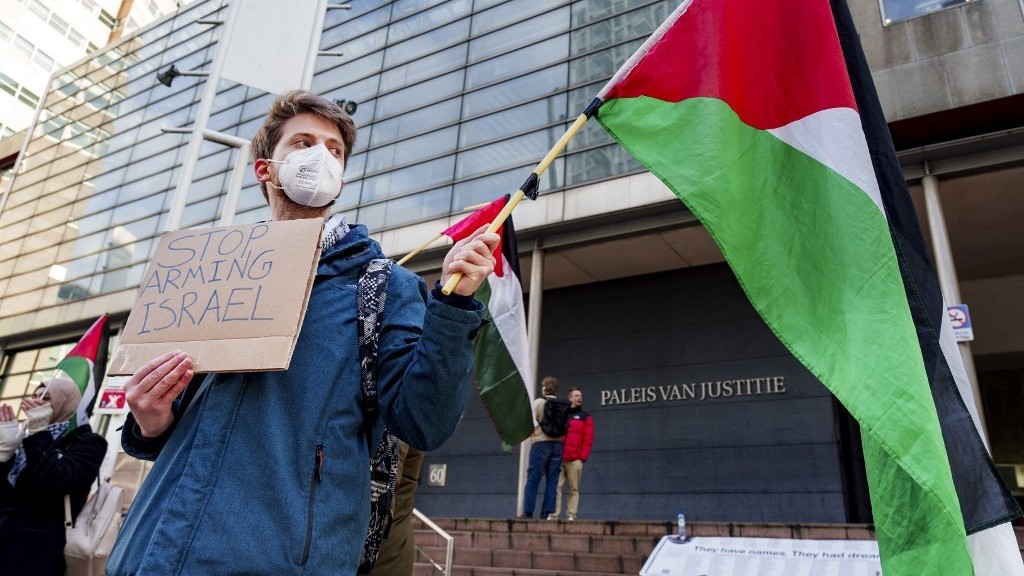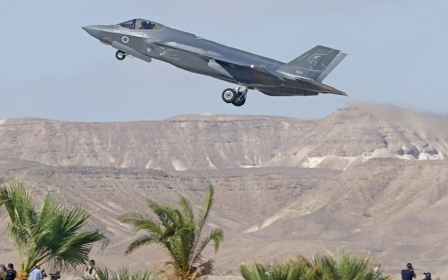Top Dutch court advised to uphold export ban of F-35 components to Israel

The Dutch Supreme Court has been advised to uphold an eight-month-old ban on the export of F-35 fighter jet components to Israel from a critical regional warehouse in the Netherlands.
In February, the Hague Court of Appeal ordered the government to block the exports over concerns Israel was using them to violate international law in its war on Gaza, a decision the government appealed.
The Woensdrecth Air Base has served as one of three F-35 distribution hubs worldwide, where components for the fighter jet are distributed to the countries in the global consortium.
On Friday morning, the advocate general announced it found that the Court of Appeal had been "justified in finding that there is a clear risk that Israel’s F-35 fighter jets are being used to commit serious violations of international humanitarian law in the Gaza Strip".
"Under various international regulations to which the Netherlands is a party, exports of military goods must be banned if such a clear risk exists," the court's adviser said.
New MEE newsletter: Jerusalem Dispatch
Sign up to get the latest insights and analysis on Israel-Palestine, alongside Turkey Unpacked and other MEE newsletters
The Supreme Court, which in most cases follows the advocate general's advice, said it would rule on the appeal as soon as possible without giving a specific date.
Three Dutch NGOs - Oxfam Novib, PAX and The Rights Forum - which have brought the legal challenge against the state, welcomed the advice to the court.
Frank Slijper, leader of the arms trade project at PAX, told Middle East Eye that the advice offered "a very important glimmer of hope" for those who are feeling doubtful about the purpose of international law.
"These sort of court cases show that it can also be more positive - just like the ruling by the [International Court of Justice] on the genocide case," Slipjer said on Friday.
'This is a clear signal and a clear point raised to the Dutch government that they should follow international law and justice'
- Gerard Jonkman, The Rights Forum
"I think that is important in times when people, for very good reasons, may be a little bit pessimistic about how things are going in the world."
He added: "It has had an effect I think morally for people who realise that there is a possibility - as small as it may look - to stop governments from contributing to and being complicit in these war crimes."
Gerard Jonkman, director of The Rights Forum, told MEE that all of the claims made by the Dutch government were refused by the advocate general in "very clear" argument.
"This is a clear signal and a clear point raised to the Dutch government that they should follow international law and justice," Jonkman said.
While the export of F-35 components directly to Israel from the Netherlands has been halted since the Court of Appeals ruling in February, it remains lawful for components destined for Israel to be exported to third countries, like the US.
In July, the Hague District Court rejected a demand from the groups to fine the Netherlands for continuing to export the components to Israel via third countries, a decision they have appealed and a case which will presumably gain momentum following Friday's advice.
The cases in the Netherlands are among ongoing legal challenges which have been brought by civil society organisations over arms exports to Israel in several countries, including the UK, Canada and Denmark, over the past year.
Middle East Eye delivers independent and unrivalled coverage and analysis of the Middle East, North Africa and beyond. To learn more about republishing this content and the associated fees, please fill out this form. More about MEE can be found here.




